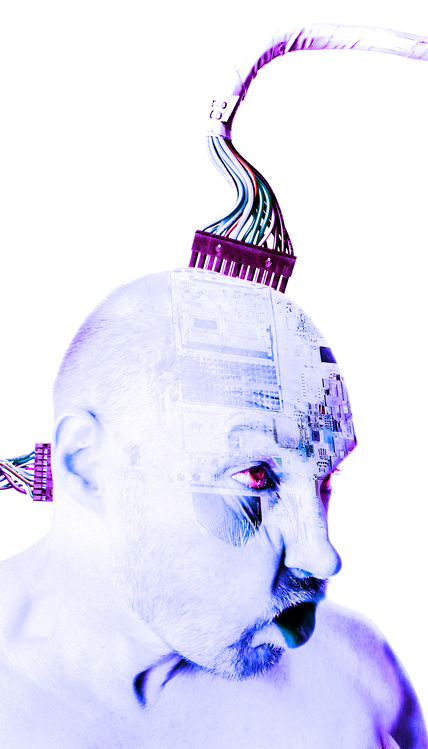
28th May 2020 Back to the Present as The Machine Stops This is a guest piece by Richard Fox – retired media director, now a singer/songwriter and blogger who writes on a variety of topics. You can read more at his WordPress site and also follow him on Twitter.
With all kinds of normal activity suspended around the world – at least for the time being – and citizens in their millions, if not billions, being confined to their homes by the pandemic, this machine we call society seems to be grinding to a halt. E.M. Forster's short sci-fi story The Machine Stops was published in 1909 but in some ways seems spookily prescient of the current situation. Forster portrays a society in ongoing lockdown, each citizen confined to his or her own underground "cell". The decor and furnishings are not exactly sumptuous, but okay if you like minimalism...
We are never told precisely why things have arrived at this juncture. It may have been the result of war, of an environmental disaster or indeed the aftermath of a plague. Environmental disaster seems the most likely explanation as we are told that "The surface of the earth is only dust and mud, no life remains on it". It becomes clear that the two protagonists – Vashti and her son, Kuno – are in an isolation that is not of their own choosing. That's not to say that, on the surface at least, they seem frustrated or depressed. Their every need (it appears) is catered for. They have all mod cons at their fingertips, including the automatic administration of medical treatments – and a kind of "home delivery" and other conveniences are just a button-press away.
"[The] very first description of the internet in any detail was probably E.M. Forster's The Machine Stops from 1909", writes Jaron Lanier,¹ "decades before computers existed: 'People never touched one another. The custom had become obsolete, owing to the Machine.' It might still be the most accurate description. How Forster did it remains a mystery".
Things are definitely not as idyllic as they seem. In reality, Vashti is terrified of the idea of leaving her underground cell and experiencing the outside world. She has a horror of direct experience. Self-isolation is in operation big-time. Vashti is never happier than when giving lectures to large groups of followers, as long as it doesn't mean meeting them in the flesh. She conducts her lectures using a Zoom-like communication system.
Kuno has been to the outside world and wants to tell Vashti some awful truths about it. They can communicate via a Skype-like medium (bear in mind this was published in 1909), which Kuno uses to persuade Vashti to visit him on the other side of the planet, travelling in an "Air-Ship". He needs desperately to talk to her face-to-face – even though it will involve her travelling halfway around the world! Alison George points out why he feels that that is a price worth paying: "A mother talks to her son by videoconference. She thinks it is 'good enough' to be able to communicate with him at all, whereas the son yearns to see her in person, recognising all the nuances that have been lost in the digitally mediated form of communication … Eventually, humans will be able to design technology offering substantive nature-like experiences. But my research tells me that, just as in Forster's story, these will always be diminished compared with real nature. If this is true, then we should think of technological nature as a bonus, not as a substitute. Otherwise we might come to believe, as we have already to some degree, that 'good enough' is 'good'.² Forster knew nothing of TV or discussion programmes, radio or phone-ins, the internet or videoconferencing and VR concerts, of course. So it's truly remarkable that the critique of technology in The Machine Stops has so many resonances with life today – I mean both the 'old normal' and our 'new normal'. Maybe Vashti is right, that some kind of face-to-face communication is better than nothing. But to the extent that it becomes the norm to opt for virtual experiences, either from choice or force of circumstance, then maybe we become increasingly de-humanised and effectively part of Forster's Machine. During the visit, Kuno tells her that he is threatened with homelessness for daring to escape to the outside, without a permit. He fears telling her through the Machine, in case he is found out and reported to the Central Committee. Homelessness would mean death. He had emerged into Wessex by climbing up a ventilation shaft with his respirator. What he sees on the surface inspires and terrifies him as the story develops to its gripping conclusion and it becomes apparent that the machine is faltering, breaking down in ways that even the Mending Apparatus can't handle. There are many possible readings of the story. Is it a political allegory, Vashti standing for a passive member of the underclass, her son Kuno a rebel, kicking against an authoritarian regime? Is it primarily a call for individuals to think for themselves? Is it, perhaps, a warning that our precious environment will be destroyed if we don't nurture it and care for it? Or does it seek to show that over-reliance on technology will lead to catastrophe? I'd venture to suggest that it could even be read as a struggle between our deepest thoughts and the need to conform – Id versus Ego, etc. Forster's own explanation seems to have been that technology was becoming a malevolent controlling force. The implication is that it would eventually take over completely. With this thought, perhaps he even foreshadows the concept of the technological singularity.
In Science As Nightmare: The Machine Stops, Silvana Caporaletti writes: "'The Machine Stops' basically expresses the same ethical and social preoccupations that inform all the other works of Forster, who repeatedly denounces the dangers of a materialistic ethos and of a general conformism imposed by rigid social conventions, exposing the spiritual barrenness and the emotional impoverishment generated by the repression of diversity, spontaneity and creativity".³ Is Covid-19, then, just the latest symptom of a wider disease that is slowly engulfing humanity? Forster covered a lot of ground in this short tale, inviting us to consider whether growing authoritarianism, man-made environmental degradation, the de-humanising effect of an over-reliance on technology, artificial insemination, rampant materialism, moral and ethical decline and dumbing-down in many spheres are the defining characteristics of what we cheerfully call civilisation. Or was Forster, writing about technology and one-party politics before two world wars, envisioning only the threats that technology posed, unaware of its potential abilities to combat the often deadly forces of Nature? What wouldn't we give for a return to the familiar, boring, predictable, comparatively carefree lifestyles, that most of us have grown up with? I've no doubt Forster would ask us to think twice about that. Perhaps we should listen to the words of some of those who have recovered from this horrendous disease and emerged like Kuno to see the world as it really is?
1 Jaron Lanier, The suburb that changed the world, New Statesman 140, no. 5066 (August 15th, 2011), np. 2 Peter Kahn in Through a window, darkly ..., Alison George, New Scientist 210, no. 2815 (June 4th, 2011), pp 32-33. 3 Silvana Caporaletti, Science as Nightmare: 'The Machine Stops' by E. M. Forster, Utopian Studies 8 (1997), no. 2: p 32.
Comments »
If you enjoyed this article, please consider sharing it:
|









